Earlier this month in downtown Chicago, the National Immigrant Justice Center (NIJC) and five companies partnered to host a clinic offering limited-scope legal representation to dozens of people navigating the U.S. immigration system after they fled their home countries in search of safety.
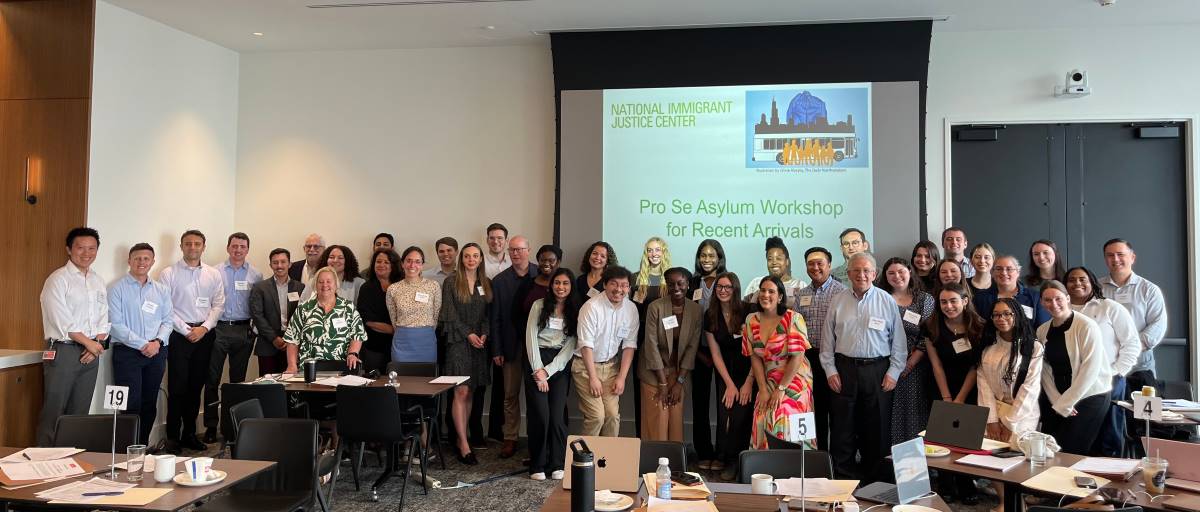
Attorneys from Skadden Arps, Slate, Meagher & Flom LLP; Chapman and Cutler LLP; Katten Muchin Rosenman LLP; Reed Smith LLP; and the legal department at United Airlines, Inc. joined 25 volunteer interpreters to help asylum seekers recently arrived in Chicago from the U.S.-Mexico border as they file their initial asylum applications.
“I feel honored and humbled to be invited and to participate to help less fortunate people,” said Rosie Gradilla, an interpreter with Katten who volunteered at the clinic. “It’s gratifying to be able to do something that is so small for me and is so huge for the client.”
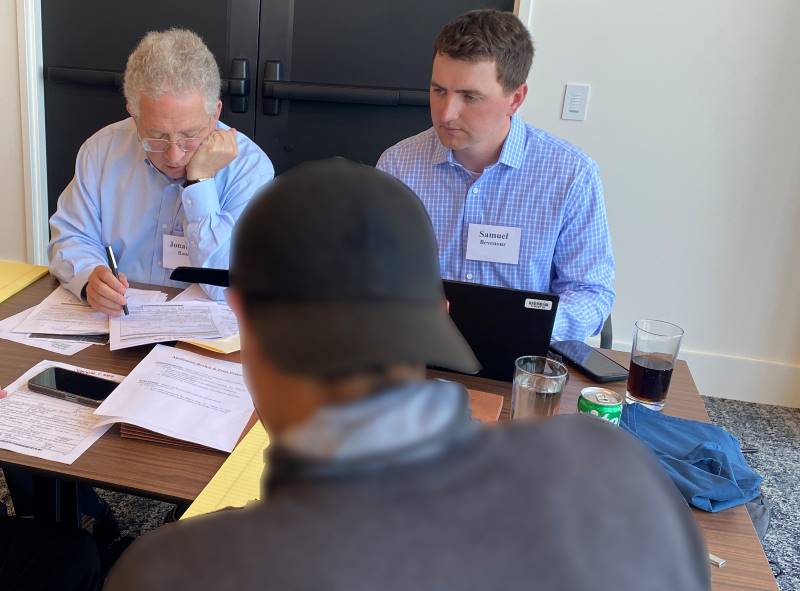
The clinic operated on the principle that every person migrating to our country deserves access to justice regardless of their background or financial status. According to a 2016 American Immigration Council (AIC) study, only 37 percent of all immigrants and 14 percent of detained immigrants go to court with lawyers on their side. And immigrants who are not detained and have attorneys are five times more likely to pursue relief and are nearly five times more likely win their cases than those without attorneys. By providing limited scope representation, pro bono attorneys offered key legal assistance during one of the most vulnerable times in the asylum seekers’ journeys.
“My parents are immigrants and I’ve seen firsthand how impactful it can be to have legal services in navigating entry in the system,” said Vania Wit, Vice President and Deputy General Counsel at United Airlines. “My parents have been able to call this country home because of the community that welcomed them when they first arrived. I think it’s important to pay it forward.”
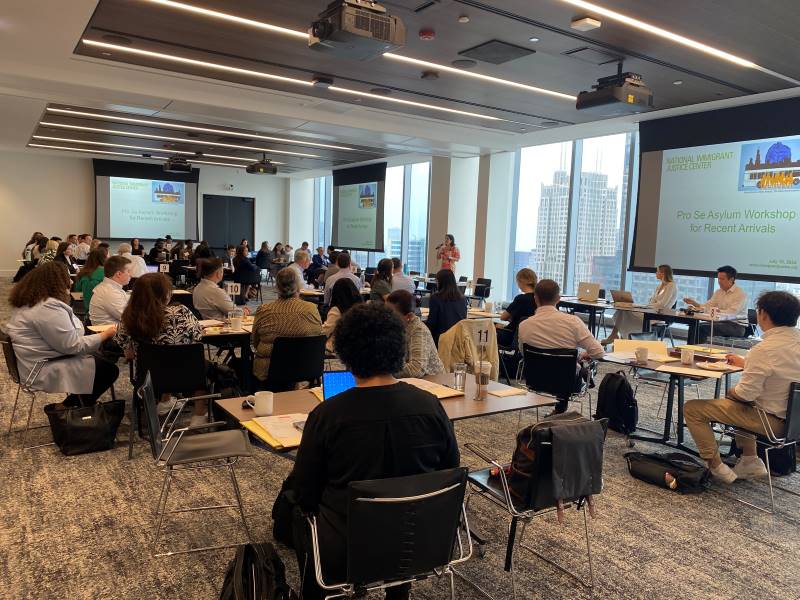
Many other volunteers also expressed how meaningful it was to participate in the clinic after witnessing their own loved ones’ experiences with the immigration system.
Jonathan Baum, pro bono counsel at Katten, added that his parents were his motivation for participating. “I am the son of a refugee from persecution so I can’t think of anything more meaningful than being able to help in this work,” he said.
For Juan Ortiz-Rivera, Labor Relations Manager at United, his spouse’s pursuit of asylum inspired him to help others navigate the same process. “My husband is a Cuban immigrant who went through the asylum process when he arrived in the United States,” he said. “Being able to help others is a privilege and doing it from different perspectives is important. I assisted my husband in completing his application for U.S. citizenship two years ago, and he was successful in his process. Now, I can help other people with asylum.”
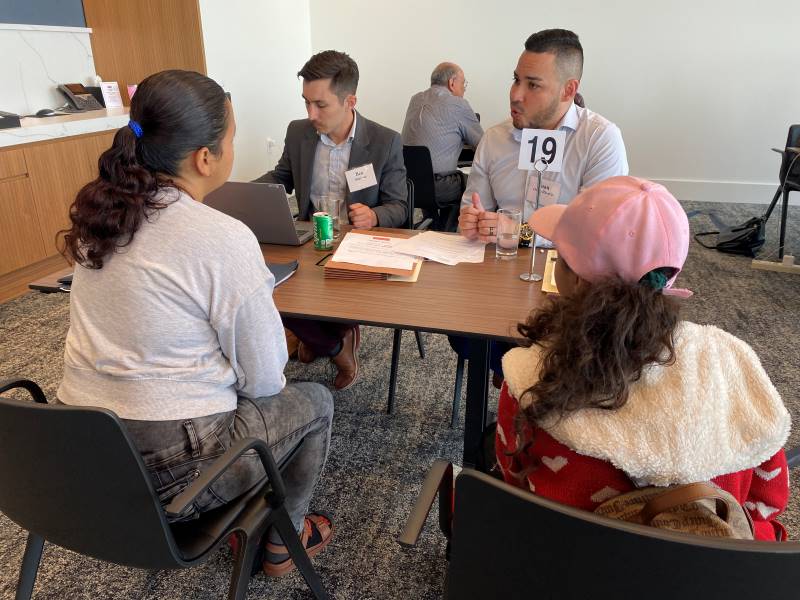
In addition to assisting people with their initial asylum applications, the clinic also empowered participants with knowledge and support to advocate for themselves as their cases progress in the coming years. Backlogs in the asylum adjudication system mean that many people will face long wait times for their applications to be reviewed.
“It’s important to do this work because we are meeting the moment of need where it is right now,” said Peter Cheun, Pro Bono Immigration Attorney at Skadden. “People are being brought to Chicago whether they want to come or not - it’s important to me to be as welcoming as possible. We [at Skadden] strive to do our share of representation, and this is an opportunity to deploy our legal resources. I am proud and excited that Skadden is hosting the event and being a part of the solution.”
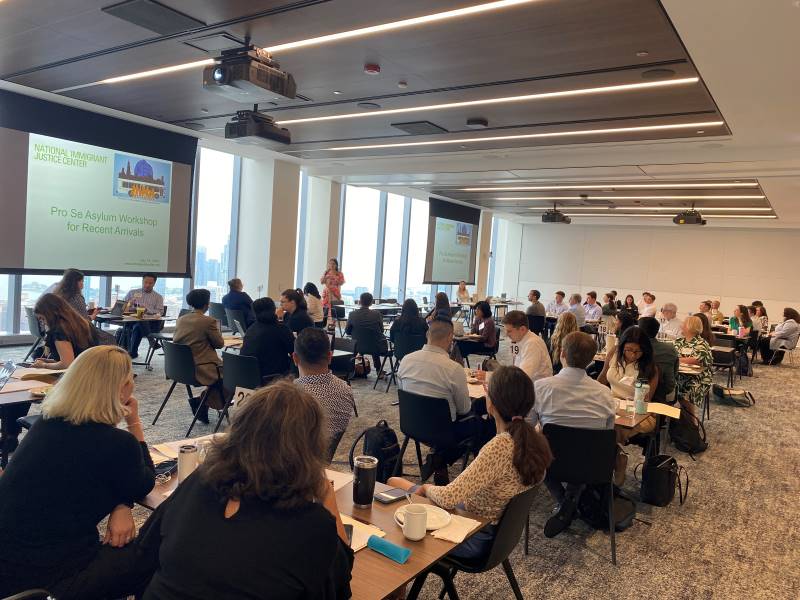
This clinic was a culmination of a year during which NIJC’s pro bono partners stepped up to host similar smaller-scale clinics every month. It was a testament to the power of collective action and the positive impact that dedicated professionals can have even if it’s with one person or family at a time.
These clinics are a great introduction for summer associates to gain firsthand, personal experience with both asylum law and pro bono practice.
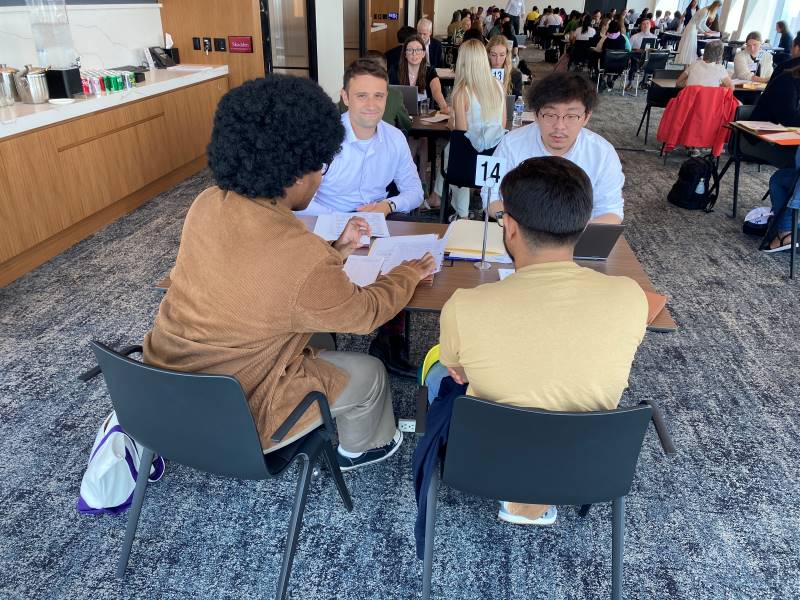
“It’s been a wonderful day and so rewarding to get to interact with the community and asylum seekers,” said Samantha Lester, a 1L Law Fellow with Chapman and Cutler LLP, at the conclusion of the clinic. “In corporate law, our clients are businesses and today we got to interact with people. It’s nice to have this touch point and tangible experience. It’s a great experience and I’ve learned client-management skills. Working with an interpreter has been a great experience.”
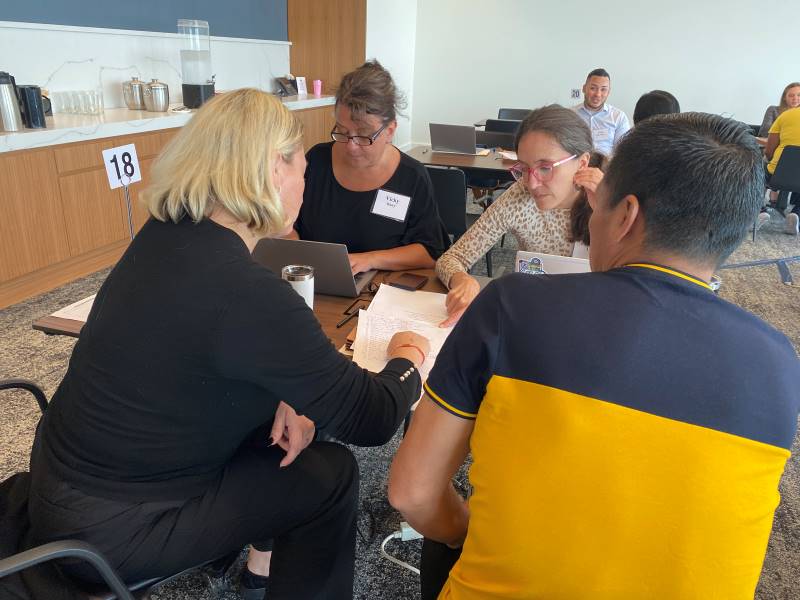
We want to extend our deepest gratitude to all our pro bono partners and volunteer interpreters who helped make the clinic a success and filed 24 total asylum applications! The collaboration of all partners exemplifies the strength and generosity of Chicago's pro bono community.
Learn more about NIJC’s pro bono work and how to share your skills as a pro bono attorney here: https://immigrantjustice.org/be-pro-bono-attorney
Solomon Collins is the digital communications and graphic design specialist at NIJC.

